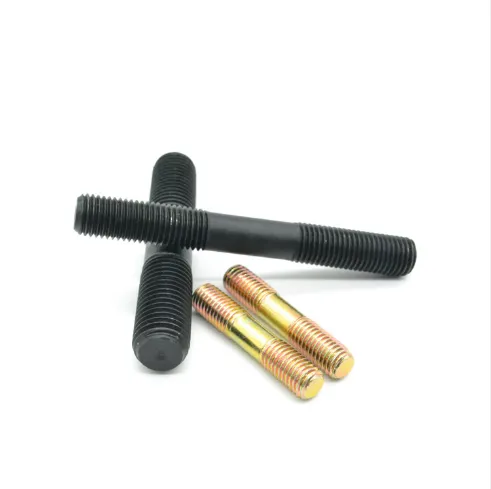wet bolts company
Oct . 06, 2024 21:25 Back to list
wet bolts company
The Importance of Wet Bolts in Construction and Maintenance
In the realm of construction and infrastructure maintenance, the significance of reliable fastening solutions cannot be overstated. Among the plethora of fastening products available, wet bolts stand out as an essential component, particularly in applications that require robust structural integrity and water resistance. This article delves into the intricacies of wet bolts, exploring their functionality, uses, and advantages within the construction industry.
What Are Wet Bolts?
Wet bolts are specialized fasteners designed to be embedded in structural connections, particularly in situations where they may be exposed to water or moisture. Unlike standard bolts, wet bolts are often made from high-strength materials that enhance durability and resistance to corrosion. A key feature of wet bolts is that they are installed with a waterproof sealant or grease, which prevents the ingress of water into the fastening area. This characteristic is critical for ensuring the longevity and stability of structures, particularly in regions prone to heavy rainfall or flooding.
Applications in Construction
Wet bolts serve an array of functions in construction and maintenance, particularly in environments that experience high levels of moisture. They are widely used in
1. Bridge Construction Bridges are often subjected to dynamic loads and environmental exposure. Wet bolts are used to secure various bridge components, ensuring they remain intact and stable against the forces of nature.
2. Marine Structures Structures such as docks, piers, and marinas experience constant exposure to water. The use of wet bolts helps in maintaining the stability and safety of these constructions against corrosion and water damage.
3. Foundation Applications In some foundation systems, especially those built below the water table, wet bolts can provide the necessary resistance against potential water ingress, helping to maintain the integrity of the structure.
4. Seismic Applications In seismic zones, proper fastening is crucial to ensure that structures can withstand lateral forces. Wet bolts provide the added benefit of water resistance while maintaining the necessary tensile strength required in such challenging environments.
wet bolts company

Advantages of Using Wet Bolts
The incorporation of wet bolts in construction projects offers several advantages that contribute to overall project success
1. Enhanced Durability With their resistance to corrosion and degradation, wet bolts can significantly extend the lifespan of constructions, reducing the need for frequent repairs and replacements.
2. Improved Safety The structural integrity provided by wet bolts enhances safety standards, protecting both construction workers and future occupants of the structures from potential hazards related to fastening failures.
3. Cost-Effectiveness Though the initial investment in wet bolts may be higher than standard bolts, their long-term benefits in terms of reduced maintenance and enhanced safety can lead to considerable cost savings over time.
4. Versatility Wet bolts can be used across various applications, making them a versatile choice for engineers and builders. Their adaptability to different environmental conditions further solidifies their importance in construction.
Maintenance Considerations
While wet bolts are known for their durability, regular maintenance checks are still essential. Inspections should focus on the integrity of the sealant and the condition of the bolt itself. Any signs of wear, damage, or corrosion should be addressed promptly to mitigate the risks of structural failure.
Conclusion
Wet bolts play a pivotal role in the construction industry, particularly in applications requiring robust fastening solutions under challenging environmental conditions. Their unique design, coupled with the appropriate sealants, ensures that structures remain safe, stable, and durable over time. As construction practices continue to evolve, the significance of incorporating advanced fastening solutions like wet bolts cannot be ignored. By prioritizing the use of high-quality wet bolts, engineers and construction professionals can enhance the longevity and safety of the structures we rely on daily. In a world where building resilience against weather and environmental factors is more crucial than ever, wet bolts represent a key solution for modern construction challenges.
Latest news
-
High-Quality Panel Stud Bolt Reliable Panel Stud Bolt Factory & Suppliers
NewsJul.08,2025
-
High-Precision Fine Thread Locknuts Manufacturer & Supplier Custom Solutions
NewsJul.08,2025
-
PH Imperial Stud Bolt – High Strength Fasteners from Leading Supplier & Factory
NewsJul.07,2025
-
High-Quality Allen Wrench Bolts Leading Factory, Company & Suppliers
NewsJul.07,2025
-
Wholesale Ball Stud Bolt - High Quality Supplier & Factory Price Reliable Wholesale Ball Stud Bolt Company
NewsJul.06,2025
-
High-Strength Alloy Bolts Manufacturer & Supplier Quality Alloy Fasteners Factory
NewsJul.06,2025
